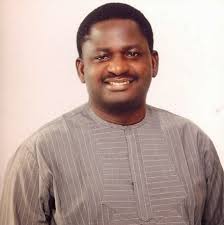Femi Adesina trended last week for the wrong reasons and with many Nigerians lashing out at him on twitter.
Several uncomplimentary comments about the presidential spokesman on twitter underscore the importance of effective public relations training for would-be occupiers of that office.
Adesina’s posts on Buhari not being appointed Minister of Petroleum and of age not being a yardstick for measuring performance in governance on the side of ministerial nominees sparked off criticisms from Nigerians.
“Femi Adesina is in this govt just to verify his Twitter account…”, “Femi Adesina needs a proper Public Relations professional to coach him. I could help but my service is very expensive!”, “Femi Adesina and his beer parlour tweets …It is not good to mix ogogoro and kunu this FEMI dude needs upgrading”, “When you hear Femi Adesina you remember wailing wailers”, the comments went on and on.
Adesina’s transgressions were his tweets on ministerial appointments: “#ministers People who have been nominated are qualified and are Nigerians. Talking of age, there is a saying that age does not matter”, “#ministers We must rather talk of the mental age rather than the chronological age. It is not the chronological age that matters…”
Adesina had absolutely no reasons to have fired those posts. They were unprovoked and unnecessary. And perhaps he doesn’t know, Nigerians are becoming disenchanted with the new government. I suppose the euphoria is over and reality is gradually setting in.
It was Adesina’s second major gaffe in a month. When Buhari visited Ghana on September 7, rather than focus on the crux of the President’s visit, Adesina posted tweets on Aburi.
“Aburi (pronounced Ebri by Ghanaians) is about 30 minutes trip from Accra, and hosts the Peduase Lodge, used by the President to host guests”. Nigerians would have none of that. He was branded Ghana’s Minister of Culture and Tourism.
We all remember how Reuben Abati lost the respect he earned over a 10-year period in four years of serving as President Jonathan’s spokesman. The former Guardian newspaper columnist and editorial board chairman is still struggling to warm himself back into the hearts of Nigerians five months after leaving office.
Segun Adeniyi did not fare any better in his sojourn at the presidential villa under late President Umaru Yar’Adua.
Femi Fani-Kayode and Dr. Doyin Okupe were total calamities as presidential mouthpieces. They earned contempt and ridicule not just for themselves but for their masters also.
None of the presidential spokesmen mentioned above qualified for the job. That Adeniyi, Abati and Adesina excelled as media men is no guarantee they would do well as public relations managers. In fact, history shows the reverse will always be the case, except for those who deliberately acquire PR skills.
Having started my career in journalism, I know all too well the love-hate relationship PR professionals and journalists have with one another. And I know that journalists don’t always make the best PR professionals.
PR looks like a promising career for someone with great contacts and the ability to tell compelling stories. A PR trainer recently said she feels journalists come to PR with a “communication culture of false urgency,” and a lack of appreciation for the “depth and reach of what reputation management really entails.” This sentiment resonates with a lot of us. I know many journalists who enter PR with stellar contacts, superb storytelling skills and a well-honed, experienced knowledge of the media business. They know how to sell a story – in the newsroom. Yet how many know how to pitch new business to a client? Or perform market research to develop a strategic communications plan that improves awareness of a product or service? Or even know that public relations has an industry code of ethics?
I believe both journalism and PR share a common interest of communicating clearly with the public. Both require a curiosity for news and an ability to tell story in a most compelling way.
To be sure, many PR professionals (like yours sincerely) got their start in journalism, or were educated in journalism schools. They know and respect the realities and challenges reporters face daily. Journalism experience can provide important entry-level training for a PR manager but most journalists fare poorly in public relations because they fail to realize that media relations is just one of many areas of communications and public relations.
Good journalists have the news judgment to know what stories to pitch, they write clear, compelling and accurate press releases, they have an appreciation for deadlines and their media connections are impeccable. All of which are terrific assets … if you’re planning to spend your entire day pitching stories. But that isn’t the reality of modern public relations. Not by a long shot. It takes a lot more than contacts to be a successful communicator.
If PR is the planned and sustained effort to establish and maintain goodwill and mutual understanding between an organisation and its publics, then at the heart of public relations is a detailed understanding of who those publics are, how they think, and what they consider important.
We live in interesting times, with economic technological and political developments all combining to form a perfect storm. Nigerians are on edge and the Presidential spokesman must not only appreciate this, but be properly schooled in the art of communicating with the President’s public – not as a journalist now – to stave off the kind of attacks, odium and ridicule we’ve seen buffeting Femi Adesina of late.
